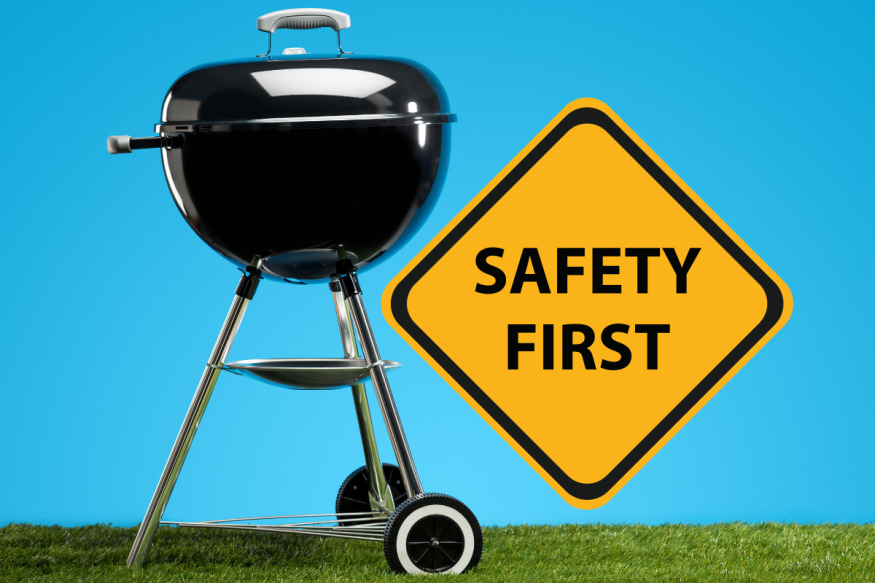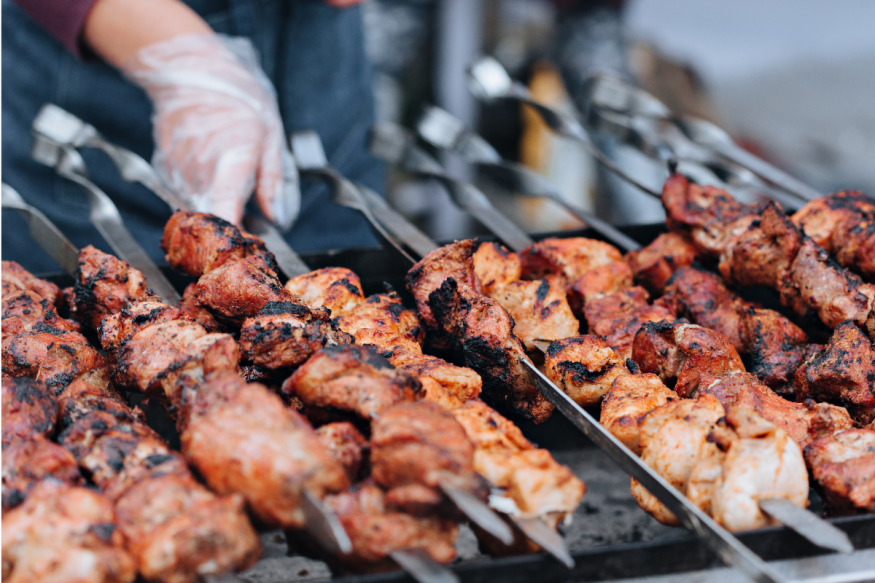
Keep your guests safe this Memorial Day! From handling food allergies to grilling pro secrets - follow these tips, and you'll be the safest barbecue boss on the block. Take a peek before you light that Kingsford.
Years ago, Eddie Murphy used to do a bit about his uncle Gus. In the routine, he talks about how Gus used to inevitably set the yard on fire by using gasoline to stoke his grill's flames. As funny as this was, food safety at barbecues isn't a laughing matter. BBQs require food and fire in places that aren't exactly perfect for cooking. Both have safety issues, so you need to be careful. There are the issues of possible allergens, food contamination, spoilage, and, of course, setting fire to your yard. If you follow these easy rules, you should have a great Memorial Day cookout without having to send your auntie to the ER.
Get the Facts on Your Friends
Ask your invited guests BEFORE they show up if there are any food or drink issues, and then plan around that - yes, it's extra work, but aren't your friends worth it? Issues include diabetes, Crohn's Disease, allergies, gout, and alcohol issues. And yes, I said alcohol issues. We are not saying to nix booze, but don't make it the only option outside flat soda either. If cousin Jack just got out of rehab, have some lemonade for the guy. It's a nice thing to do and also helps make sure he isn't in rehab again next week. If you want a successful event, keep your guest's well-being in mind. The last thing you want is Grampy in the corner, sadly eating a piece of lettuce and sipping tap water because no one thought to accommodate his weak pancreas.

Temperature is King
Danger Zone: Bacteria multiply rapidly between 40°F (4°C) and 140°F (60°C). Keep cold foods below 40°F (4°C) with ice or a cooler, and hot foods above 140°F (60°C).
Leftovers: The 2-hour rule applies! Don't leave food out more than 2 hours before refrigeration. Reheat leftovers thoroughly before serving.
Grocery Smarts: Buy your meat last and refrigerate it immediately to minimize warming.
Gear Up: Make sure you have a food thermometer on hand at all times to check your meats.
Cooking Temperatures:
Burgers: 160°F (71°C) in the center (no pink)
Chicken: 165°F (74°C) in the thickest part
Steak: 145°F (63°C) with a 3-minute rest after cooking
Prevent Cross-Contamination:
Utensil Etiquette: Use separate utensils for raw and cooked meats to prevent transferring bacteria.
Plate Precautions: Never place cooked food on a plate that had raw meat on it. This goes for cutting surfaces as well. Wash these often as well.
Washing Up: Everyone handling food should wash their hands thoroughly.
Fire Drill:
Cleaning Your Grill: According to a recent study, a grill that hadn't been cleaned properly was a factor in one-fifth of grill fires. Give your grill a thorough scrub before firing it up with a wire brush to get that caked-on grease off.
Location: Did you know that a quarter of grill fires start on balconies or porches? Keep your grill away from flammable structures and railings.
Secure Your Work Area: Especially if you are using coal, make sure there is nothing flammable around you when you set up your grill. Coal can spark and spit so if you have dry refuse around you, embers can cause a fire.
Gas Grill Safety: Gas grills are involved in a significant number of fires, with hose or container leaks being a common culprit. Inspect your gas lines for leaks before each use, tighten any loose connections, and listen for any leaks.
By following these simple steps, you can guarantee a safe Memorial Day cookout for all. Now, go forth and embrace your inner pit-boss! For more tips on how to keep your grilling safe, the USDA is a great source of information.



